There has been a growing concern about the potential risk of fluoride in drinking water. As new parents, the desire to watch over your baby’s health becomes paramount. Ensuring that your baby consumes clean water devoid of potential health risks is both a worthwhile and necessary endeavor. Numerous discussions abound within medical circles, many questioning whether the fluoride that has been a common additive in our drinking water might do more harm than good. The key to making sense of these discussions is to ensure that you make decisions rooted in accurate information and it starts with understanding more about fluoride.
In this blog, you will find in-depth analysis of the controversy surrounding fluoride, an additive that’s commonplace in almost all drinking waters. Together, we will delve deep into the labyrinth of scientific research to dissect possible threats and benefits tied to fluoride. More importantly, we are going to explore the benefits of choosing fluoride-free bottled water. Join us in this critical discourse as we strive to not only enlighten you, but also to empower you with knowledge. Our aim is to equip you with the insights necessary to make informed decisions about what’s best for your family’s water consumption.
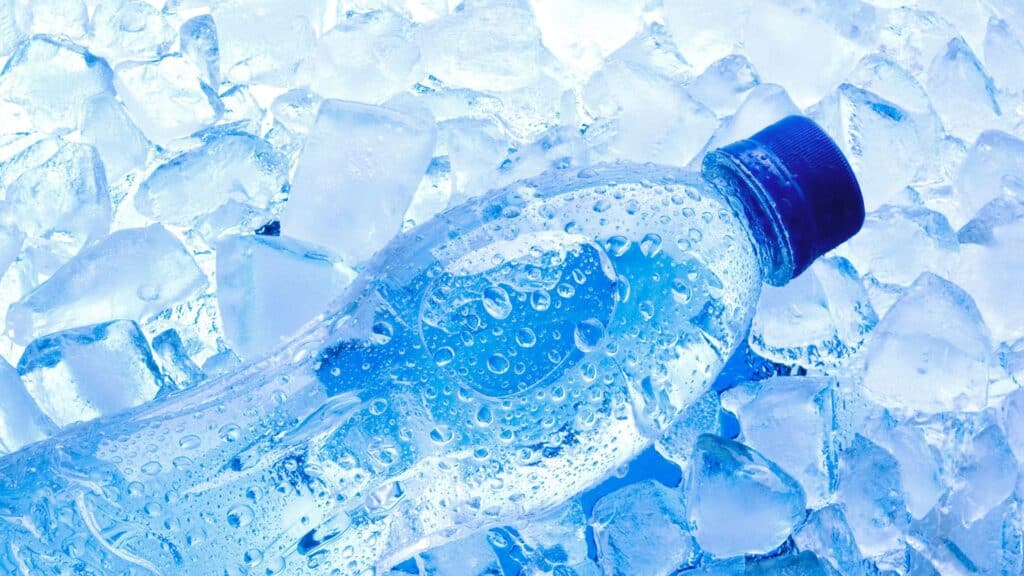
Water: Essential for Healthy Growth
Water is incredibly crucial for your baby’s growth and development. It aids in multiple physiological functions, including supporting the kidneys – organs that regulate water balance and waste filtration. Inadequate hydration could impede these critical processes, leading to potential waste accumulation in your baby’s body. The importance of urine output in babies cannot be overlooked; water plays a critical role in allowing babies to excrete waste substances through urine, consequently minimizing toxic effects.
Meanwhile, water also plays an essential role in maintaining your baby’s skin health. Babies are known for their soft and plump skin, a trait that owes much to high water content. When properly hydrated, your baby’s skin becomes more flexible and maintains its integrity, supporting healthier development of skin and underlying muscle tissue, and promoting overall growth from birth.
However, failure to hydrate adequately might result in grave health issues, among which dehydration is foremost. Dehydration sets in when the water level in the body drops below a requisite threshold. This condition can trigger a blood pressure drop in your baby and complicate their breathing, making it challenging to oxygenate their vital organs.
If left unchecked, this lack of hydration and resulting dehydration can escalate into severe health challenges. These can range from kidney failure to heat injuries like heatstroke, and seizures due to electrolyte imbalances. Chronic dehydration could also thwart physical and cognitive development in babies, setting them on a dire health trajectory at an early age.
So, it is paramount that your baby has access to adequate hydration. However, please note that breast milk or formula provides sufficient hydration for babies, and water as an additional drink should be included only beyond six months of age. Always consult a healthcare professional if you’re concerned about your child’s hydration.
A Basic Guide to Fluoride
Fluoride is a natural element commonly present in many dental products these days. It’s also found in municipal waterways to provide enough fluoride to everyone in the community.
Coincidentally, fluoride is also present in human bones and teeth. Many experts agree that fluoride supplements effectively prevent and even halt any possible signs of tooth decay.
There are two ways to consume fluoride in your system:
- fluoride supplements: This supplement promotes bone and dental health by making it more durable.
- surface application: fluoride application is another way to fight off tooth decay by applying a particular amount of fluoride directly to the teeth’s surface. Doing so helps rebuild and strengthen the tooth enamel (teeth surface) by replenishing the lost mineral.
Fluoride is a common ingredient for products meant to address oral health. Since members of the American Dental Association have proven its effects, various companies are encouraging people to use these products containing the optimal amount of fluoride to help their oral health.
Not only will it help them maintain their teeth, but fluoride intake can also make them feel more comfortable smiling because of their boosted self-esteem. But what happens if you consume too much fluoride?
Why Fluoride Is Added to Water
Fluoridation of water is the controlled addition of fluoride to a public water supply. It aims to help small children develop strong teeth and reduce tooth decay. It has been used in many countries since the 1950s and is endorsed by many dental and health organizations. The use of fluoridated water to prevent dental caries has long been controversial because it raises ethical issues that some people find troubling.
Water fluoridation aims to increase the amount of fluoride that people are exposed to throughout life. Fluoride occurs naturally in all parts of the earth but not in concentrations particularly beneficial for teeth. In order to increase exposure to fluoride without having people ingest large amounts directly (which would be dangerous), the practice of adding it to drinking water was invented.
Fluoridated water has been a part of American life for over 70 years and has been shown to reduce cavities by as much as 25% in children’s teeth who are at high risk for cavities. In the United States, oral health has improved since many years ago. Although cavities are still common among children, community water fluoridation is one of the most cost-effective ways to prevent cavities.
The Potential Risks of Fluoride for Babies
Fluoride is a naturally occurring mineral found in water sources and oral hygiene products. While it has been shown to be effective in preventing cavities and promoting dental health, there are concerns about the potential risks associated with excessive fluoride exposure in babies.
Babies are particularly vulnerable to the negative effects of fluoride due to their smaller size and developing immune systems. Additionally, their tendency to swallow toothpaste and other oral hygiene products increases their risk of exposure.
Three potential risks associated with fluoride exposure in babies include dental fluorosis, thyroid problems, and cognitive issues. Dental fluorosis can lead to discoloration and weakening of tooth enamel, while thyroid problems can disrupt the body’s metabolism. Some studies have also linked excessive fluoride exposure to cognitive issues.
To reduce the risk of fluoride exposure, parents can consider using fluoride-free water bottles and researching the fluoride content in their own water supply. It’s important to understand how much fluoride is safe to consume on a daily basis and to be aware of the demineralization process that occurs when too much fluoride is ingested.
While fluoride can be beneficial, it’s important to do your own research and make informed decisions about adding fluoride to your baby’s routine. Most people consume fluoride through their water supply and food, so it’s important to be aware of potential sources of exposure and take steps to reduce risk.
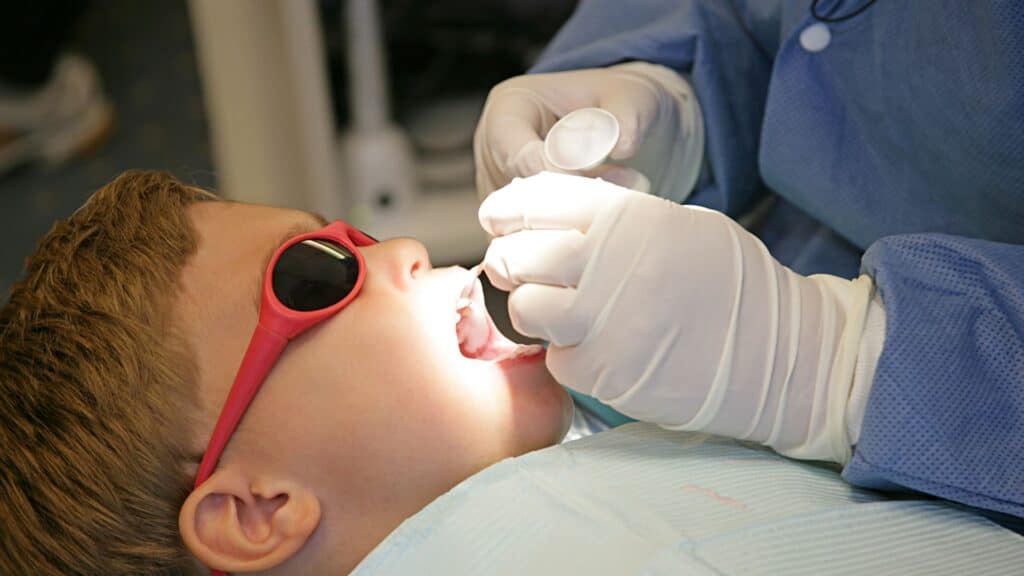
Dental Fluorosis
Fluoride is an essential mineral that offers numerous dental health benefits, including preventing tooth decay and gum disease. It’s also present in many foods and water supplies. Fluoride in toothpaste and mouthwash, known as topical fluoride, is beneficial for people of all ages.
However, excessive fluoride intake can cause dental fluorosis, a condition that results in white spots or streaks on developing teeth in children under 8 years old. To avoid this, parents can consider using fluoride-free toothpaste and researching the fluoride levels in their water supply.
While fluoride can be helpful in preventing tooth decay, it’s important to balance its benefits with the risk of dental fluorosis. By taking the necessary precautions and using fluoride-free toothpastes, parents can ensure their children’s oral health is protected without risking white spots or other discoloration on their teeth.
Thyroid Problems
There is also a potential risk for thyroid problems for babies exposed to fluoride before birth. A study in China showed that infants born to mothers who used fluoride-containing toothpaste during pregnancy had a higher rate of hypothyroidism (underactive thyroid).
Fluoride-free toothpaste is a safe alternative for babies and children who are at risk of getting too much fluoride. Using a water filter can also help remove fluoride from drinking water and reduce exposure.
Cognitive Issues
While fluoride has proven to prevent tooth decay and gum disease, excessive exposure can have negative effects, especially for young children. Studies have shown that fluoride exposure during critical periods of development can negatively impact cognitive function. This is why it`s crucial to monitor fluoride intake, particularly for babies and young children. Using filtered tap water is an effective way to remove fluoride or reduce exposure to trace amounts of the mineral.
It’s essential to be mindful of fluoride consumption and take steps to minimize exposure, such as using fluoride-free toothpaste and limiting intake from municipal water sources.

The Benefits of Using Fluoride-Free Water for Babies
Babies are especially vulnerable to environmental toxins and pollutants, so providing them with safe and clean water is essential.
Here are some of the benefits of using fluoride-free water for babies:
Reduced Risk of Dental Fluorosis
Fluoride-free water has a lot of benefits for babies. It reduces their risk of developing dental fluorosis, a condition caused by overexposure to fluoride. This condition can make teeth more sensitive, discolor them, and cause cracks in the enamel.
Protection Against Other Potential Health Risks
Studies have suggested that high levels of fluoride consumption may be linked to other health risks, including thyroid problems and cognitive issues. While the evidence is not yet conclusive, there is growing concern about the potential risks of fluoride exposure for babies. Using fluoride-free water for babies can help protect them against these potential risks.
Improved Overall Health and Development
Fluoride-free water can also help support babies’ overall health and development. Babies are particularly vulnerable to toxins and pollutants, and exposure to fluoride may affect their developing bodies and brains. By using clean and safe water without added fluoride, you can help support your baby’s overall health and well-being.
Greater Control Over Fluoride Intake
When you use public water supplies, controlling the amount of fluoride your baby is exposed to can be challenging. This is because the fluoride levels in public water supplies vary widely, depending on where you live. By using fluoride-free water for babies, you can have greater control over their fluoride intake and ensure they are not consuming too much.
More Options for Water Sources
Finally, using fluoride-free water for babies gives you more options for water sources.
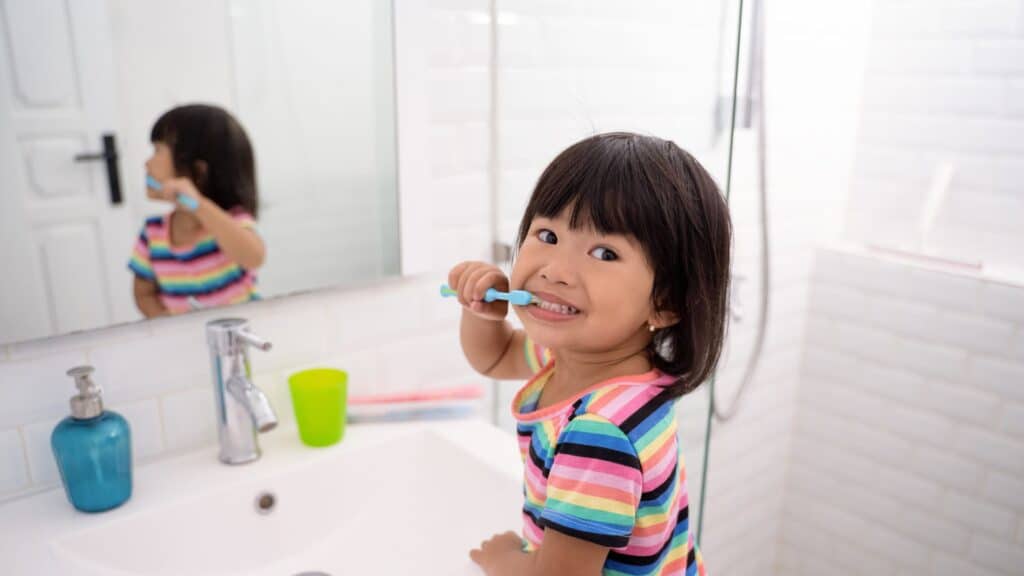
While public water supplies may contain fluoride, many other clean and safe water references do not, including distilled, purified, and spring water, by exploring these options, you can find the best type of water for your baby’s needs.
Alternatives to Fluoride-Containing Water
If you are concerned about the potential risks of fluoride for your baby and want to avoid fluoride-containing water, there are several alternative options to consider:
If you don’t want fluoride in your water, there are plenty of alternatives. Here’s a list of some of the most popular ones:
Distilled Water
This is the purest form of water and doesn’t contain any minerals or chemicals. To make distilled water yourself, you only need to boil regular tap water and then condense it into liquid form. It’s important not to add anything else to this water because it will change the chemical makeup and make it unsafe for consumption. If you’re worried about bacteria or other contaminants in tap water, you can use a filter before boiling.
Spring Water
Spring water comes from natural underground springs and has been filtered by layers of rock over time, so it’s not only safe but delicious! A lot of bottled waters are spring waters, too (like Aquafina), so if you want to avoid fluoride but don’t want to make your own distilled water, this is an easy option.
Mineral Water
Like spring water, mineral water is sourced from natural underground reserves that have been filtered through layers of rock for millions of years. However, mineral water contains elevated levels of minerals such as calcium, magnesium, and potassium, which are advantageous to health. These minerals are naturally present in the rocks and soil that the water passes through, giving mineral water its distinctive flavor and composition. Nonetheless, it’s essential to recognize that not all mineral waters are the same, and their composition can fluctuate based on their origin and location.
Filtered Water
Filtered water is a great alternative to fluoride-containing water. It’s simply water filtered through a filtration system and then bottled. This process removes impurities like dirt, bacteria, and other contaminants that make your water unsafe to drink.
Filtered water will also give you access to some of the minerals that are removed during the process of making fluoridated water, like calcium and magnesium, which are important for your overall health!
Purified Water
Purified water is made by distillation, where the impurities are removed by boiling the water and then collecting the vapor and condensing it into liquid form. Purified water is typically free of bacteria and viruses but may contain other chemicals in the groundwater.
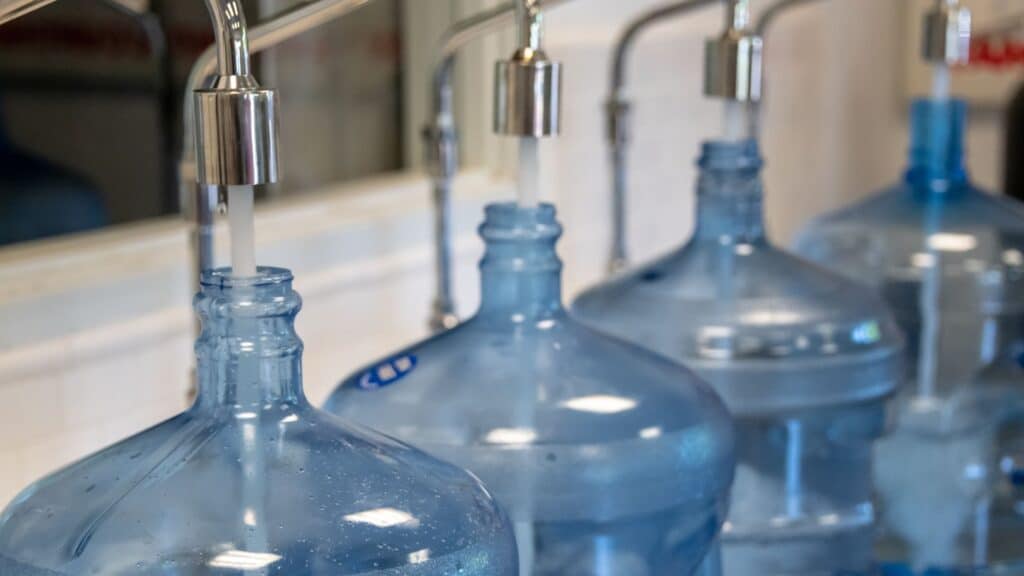
Tooth Decay on Children
Tooth decay is a common problem in many people, especially kids. That’s why it’s essential to find ways to address these problems before it gets worse.
Bacteria, among many others, can cause adverse effects on children’s teeth. It can happen when sugars and starches from food get left as the bacteria turns these foods into acids.
Once that happens, it can start to eat away the tooth’s enamel, which can cause cavities to build up. Fortunately, there are many ways to prevent that from happening.
Tips for Protecting Your Baby’s Teeth and Overall Health
Good oral hygiene habits for babies are essential for protecting their teeth and overall health. Here are some tips for establishing good oral hygiene habits for your baby:
- Clean your baby’s mouth: Use a clean, damp cloth or gauze to clean your baby’s gums after feeding to remove bacteria. Once their teeth start coming in, they use a small, soft-bristled toothbrush and a pea-sized amount of fluoride toothpaste to brush their teeth twice a day.
- Avoid sugary drinks: Sugary drinks like juice, soda, and sports drinks can lead to tooth decay. Encourage your baby to drink water or breast milk/formula instead.
- Don’t put your baby to bed with a bottle: When babies fall asleep with a bottle, the liquid pools in their mouth, promoting the growth of bacteria that cause tooth decay.
- Schedule regular dental check-ups: The American Dental Association recommends that children have their first dental visit within six months of their first tooth or no later than their first birthday.
In addition to good oral hygiene habits, there are other ways to protect your baby’s health. Here are some tips:
- Ensure your baby gets enough sleep: Babies need a lot of sleep to grow and develop properly. Aim for a consistent bedtime routine and establish healthy sleep habits early on.
- Encourage physical activity: Even at a young age, babies benefit from being active. Encourage tummy time, crawling, and other forms of movement.
- Offer a variety of healthy foods: A well-rounded diet is essential for overall health. Offer a variety of healthy foods to ensure your baby gets all the nutrients they need.
- Keep your baby’s environment clean: Regularly cleaning and disinfecting your baby’s toys, bedding, and other items can help prevent the spread of germs.
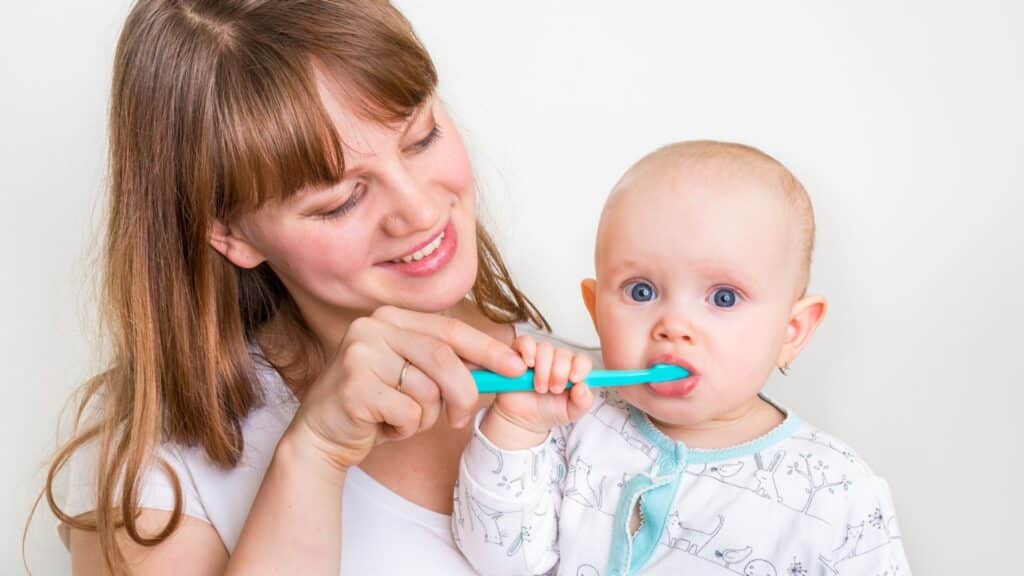
Remember, your baby’s teeth and overall health are important. By establishing good oral hygiene habits and following these other tips, you can help protect your baby’s health and set them on a healthy, happy life.
Tips on Choosing a Fluoride-Free Water for Infant Formula
When your baby is ready to start drinking water, you may wonder which type of water you should buy. While there are many different types of bottled water on the market, some are better than others for your baby.
Here are a few tips on choosing fluoride-free water for babies:
1. Check with the local water companies in your area to see if the municipal water supply has fluoride. If so, consider switching to a different source of water that doesn’t contain fluoride.
2. Look at the list of ingredients on the water bottle you’re considering buying. If it contains sodium fluoride or sodium hexafluoro silicate, it’s likely fluoridated. If it doesn’t have these chemicals, you should be good!
3. Evaluate your local grocery store. You may think that since they sell water, it’s safe and healthy for your baby. However, many grocery stores are selling reverse osmosis water with added minerals. This means there is still a tiny amount of fluoride in it.
4. Buy distilled or purified bottled water instead. It contains no chemicals, so it’s the safest bet if you want something with no additives.
5. Boil water before using it for your baby’s formula or other drinks. This will ensure that no bacteria or other harmful substances have been added to it during its processing or transportation process.
6. Talk with your doctor. Your doctor can help ensure that your baby’s diet and nutrition, including their drinking water, are safe! If you’re worried about what kind of water will be best for your child’s health, talk with your doctor about what options might be best for them.
Conclusion
In conclusion, the choice to use fluoride-free water for your baby is an informed decision that promotes optimum health. The wonderful benefits it offers, from reducing the risk of dental fluorosis to potential protection against other health risks such as thyroid problems and cognitive issues, all contribute significantly to the overall health and development of your cherished child. Importantly, it allows parents more control over their baby’s fluoride intake, helping to mitigate potential risks linked with overexposure.
Beyond just health benefits, utilizing fluoride-free water also presents parents with a considerably broader range of choices for sourcing water. Options including preferred distilled water, beautiful natural spring water, and mineral-rich options present an array of beneficial alternatives. While fluoride does have proven positive use cases, specifically in dental health, special care should be taken to avoid early overexposure in infancy. With the wealth of knowledge available concerning the possible risks of fluoride versus the merits of fluoride-free water, parents are now empowered to make the best, most informed choices for safeguarding their child’s health and well-being. As always, we are here for constructive discussion, and to answer any questions or comments you may have in the section below.
Please leave a comment below if you have any questions.



